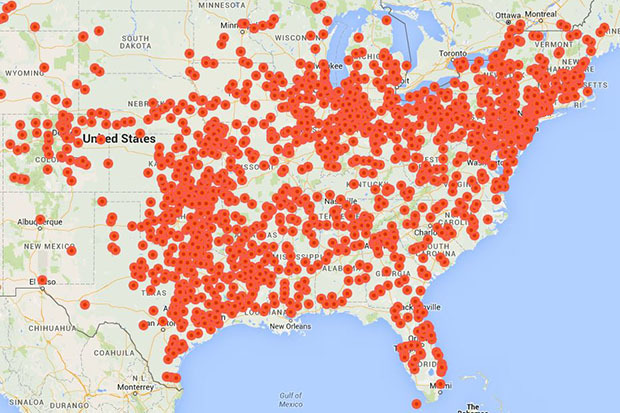A new online project at Virginia Commonwealth University in Richmond tracks the growth of the Ku Klux Klan in the United States between 1915 and 1940. The Klan first emerged after the Civil War but quickly faded as southern legislators were able to reestablish means other than violence to maintain racial segregation following the end of Reconstruction.
But the Klan reemerged in the early part of the twentieth century. At its height in the 1920s, there were more than 2,000 local chapters of the Klan with as many as 8 million members.
The new project allows visitors to the site to see a map which shows how the Klan grew and spread across the country. John Kneebone, an associate professor of history at Virginia Commonwealth University, says that “this map shows you just can’t say ‘Oh, it was those crazy people in the South.’ The KKK was in the mainstream. Everywhere there was population, there was the Klan.”
Professor Kneebone notes that his research includes only those chapters that he was able to identify from Klan literature and local newspapers. There may have been many more chapters that chose to keep their organizations secret.



Yes, I remember when I started graduate school at Rutgers University-Newark. Circa 1988. The Ku Klux Klan came to campus to recruit members. We have always been a diverse campus, so the KKK went all around to every building to every bulletin board and tore down flyers from black organizations, Spanish organizations, etc. The young people were not like their elders: they were not afraid of the KKK. We got rid of them. How? I was writing for a campus publication and I wrote about the history of the KKK, right on the front page, with all of their atrocities. I would like to say that we shamed them away. Nevertheless, shame or not, the KKK vanished off campus. I am also familiar with a branch of the KKK in Hightstown, NJ near Newton, NJ where my extended family lived. Thus. I have always been aware of the KKK’s influence in NJ: The Georgia of the North.